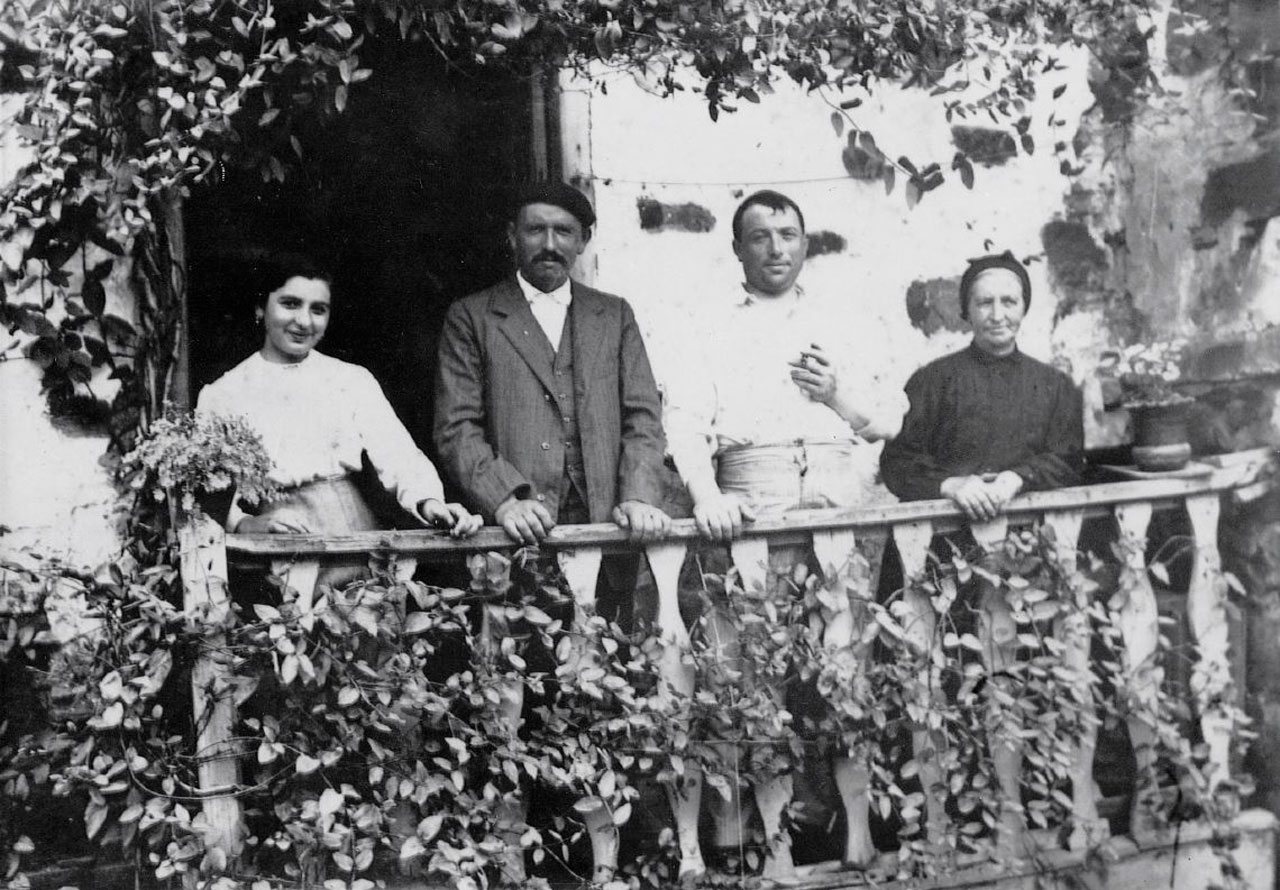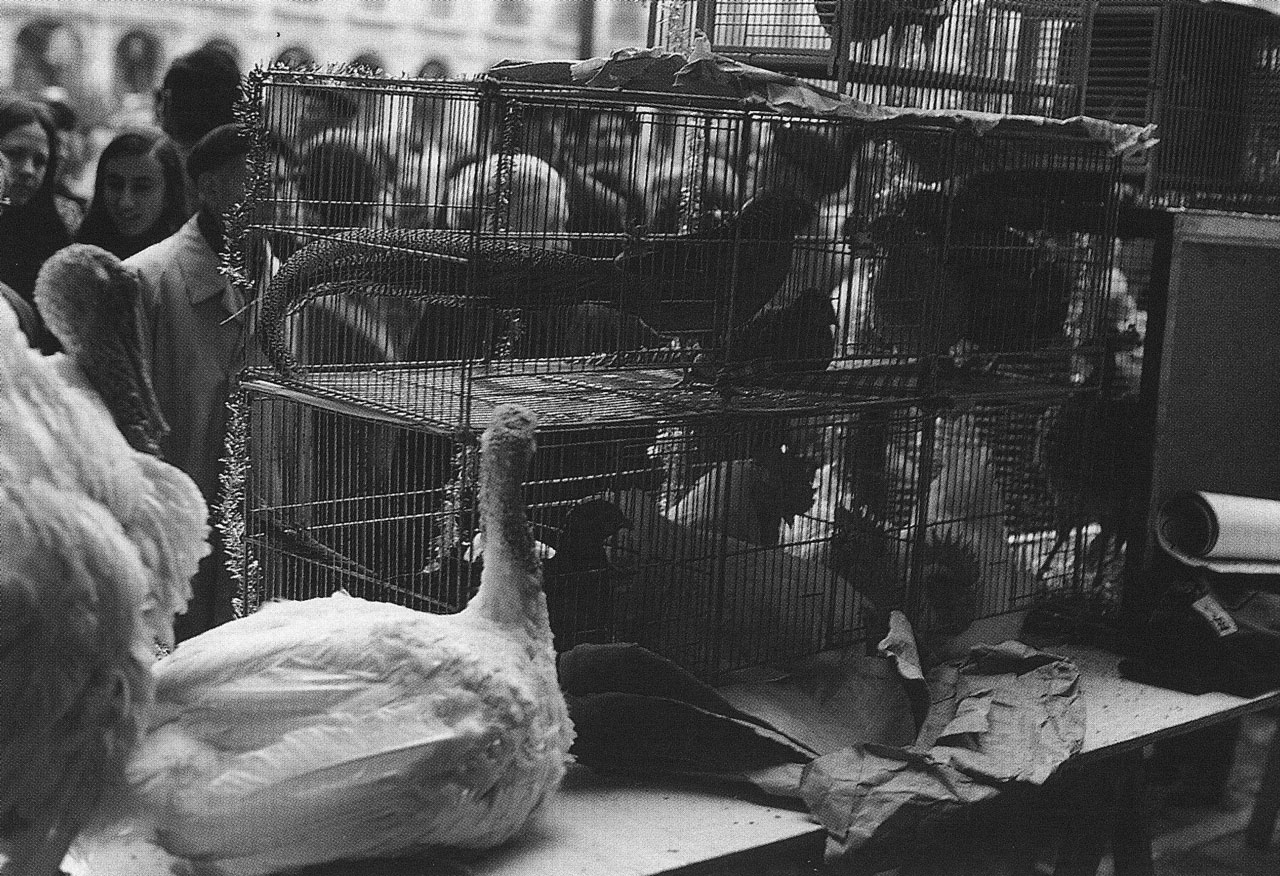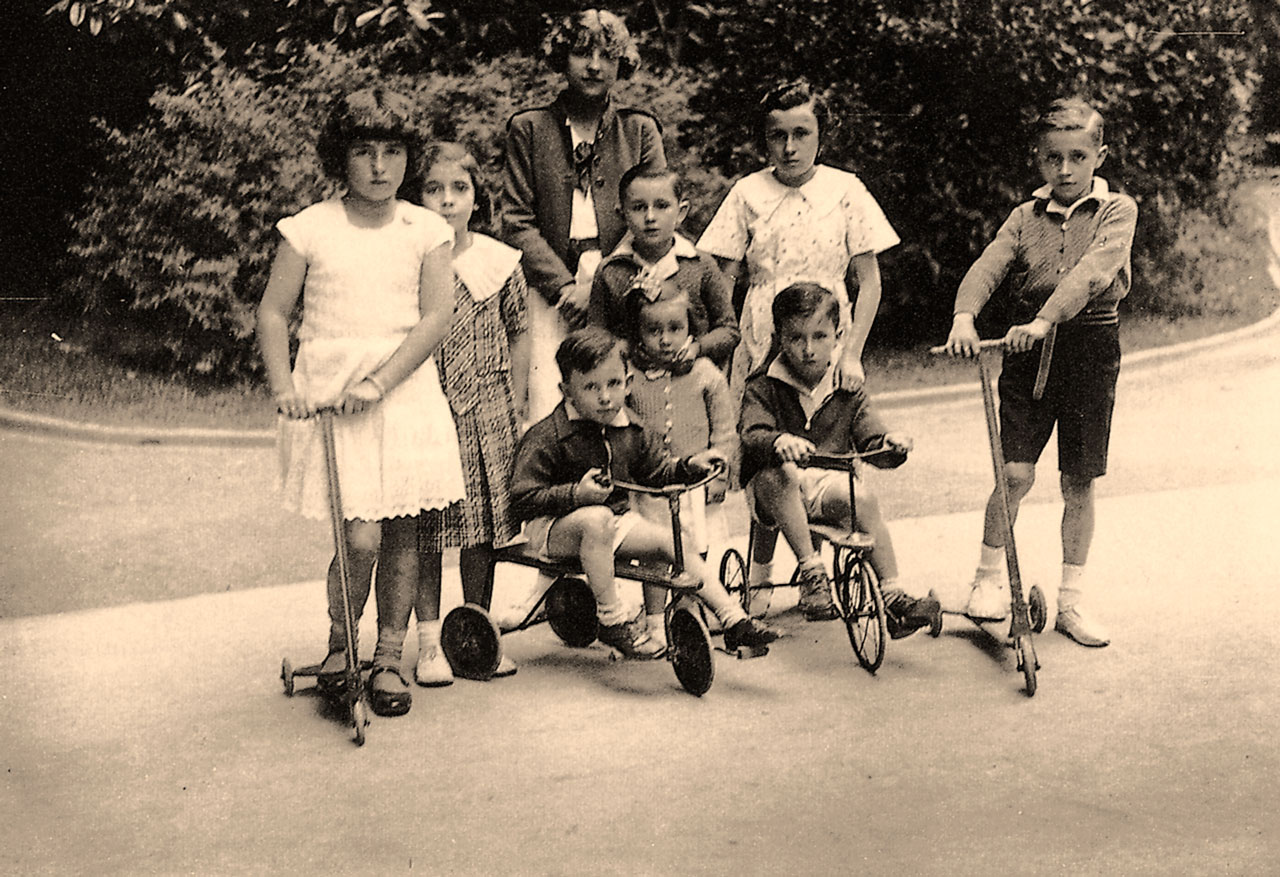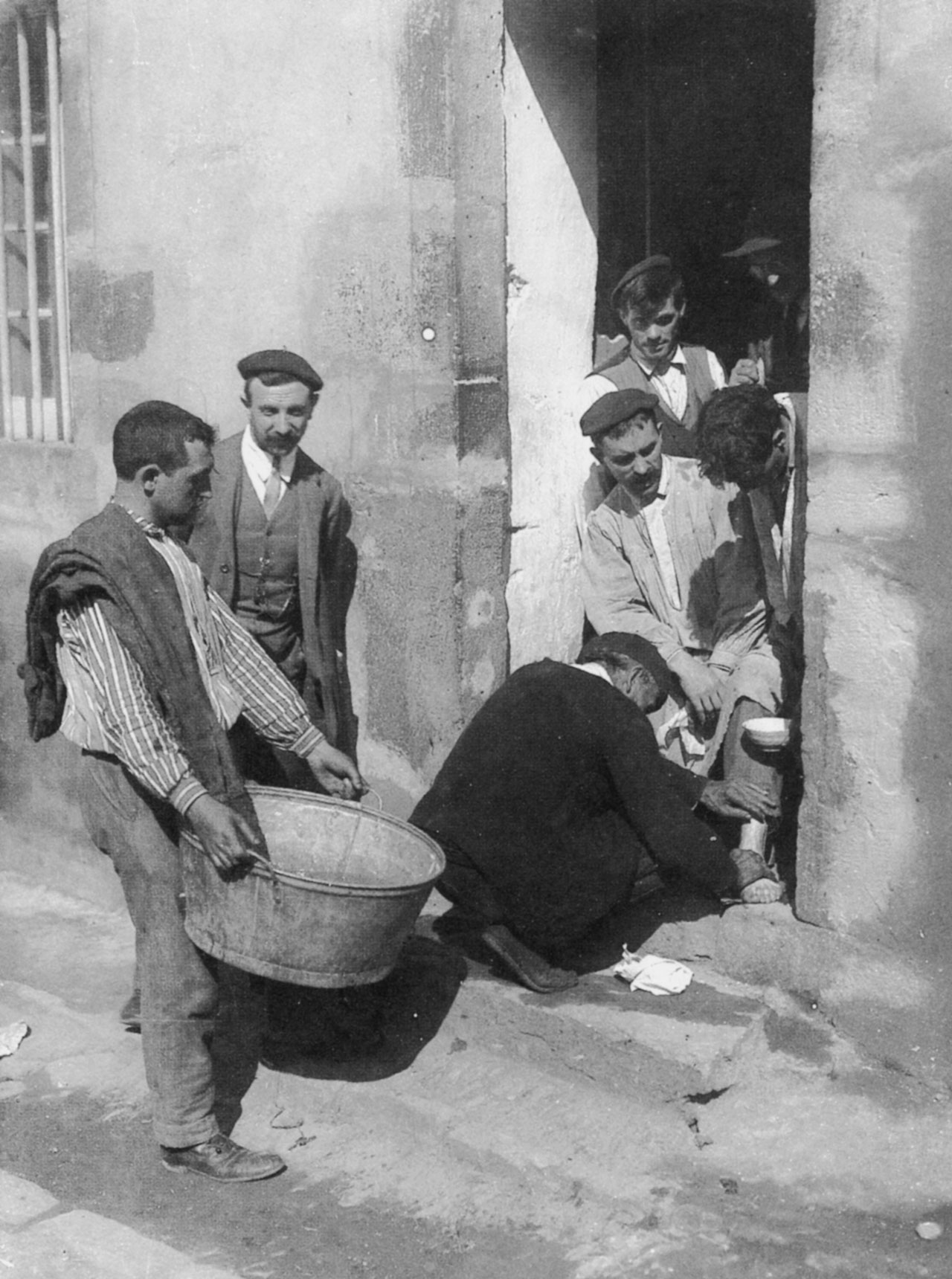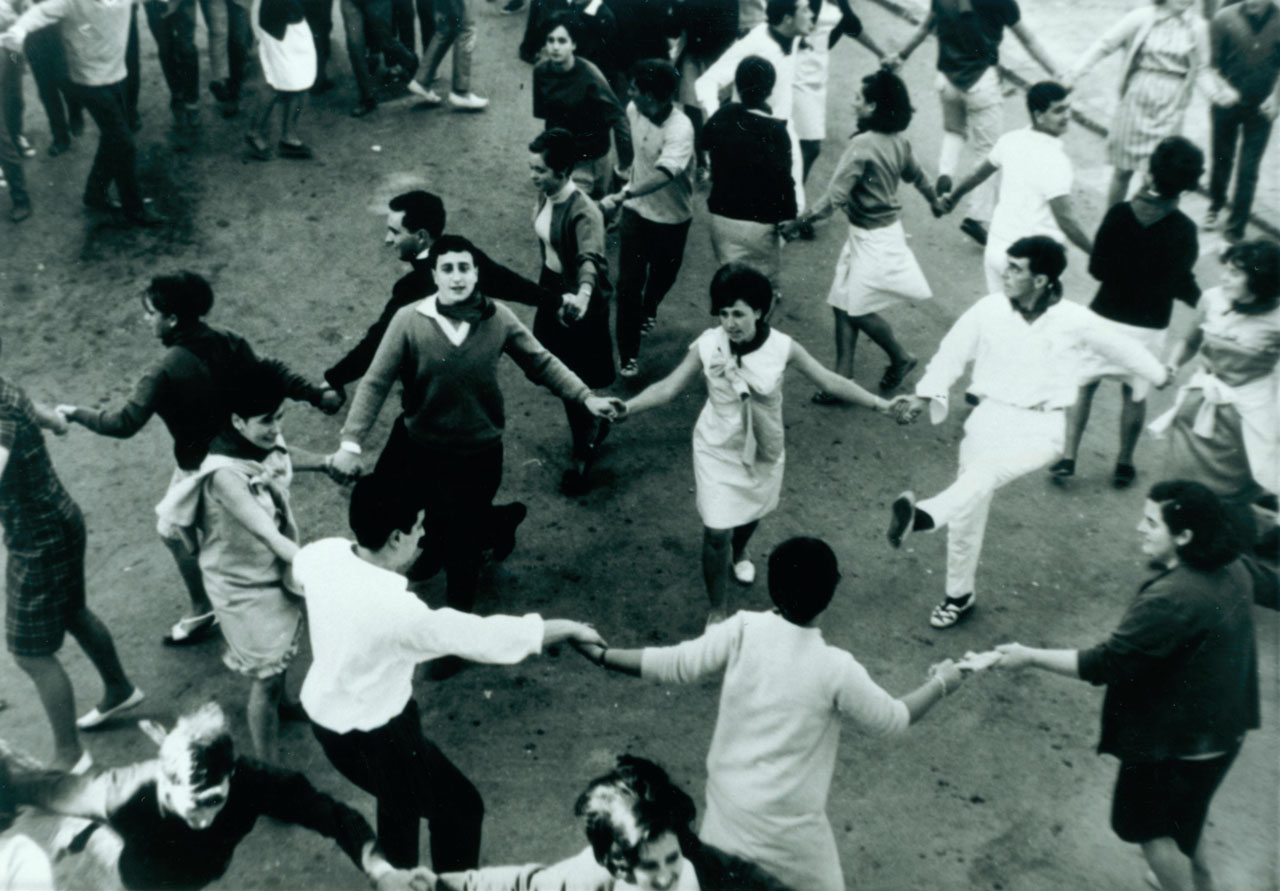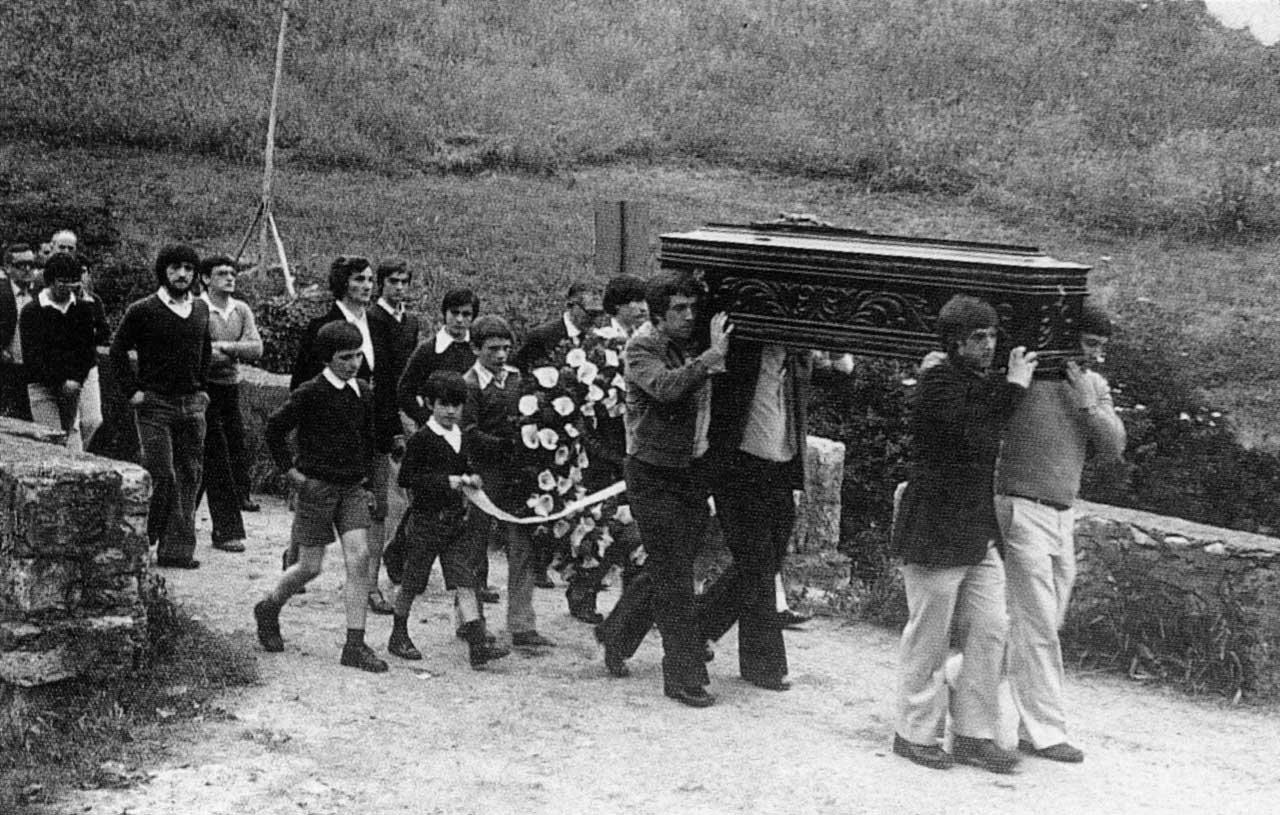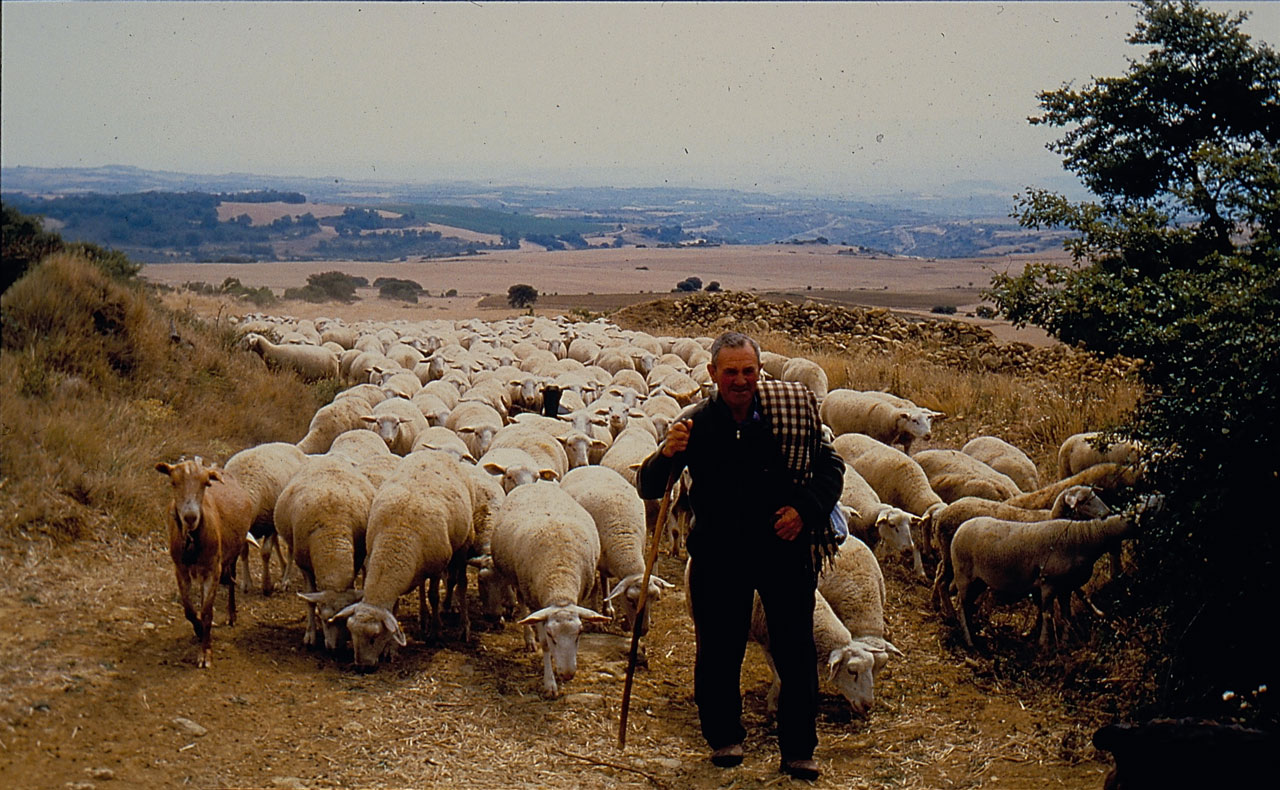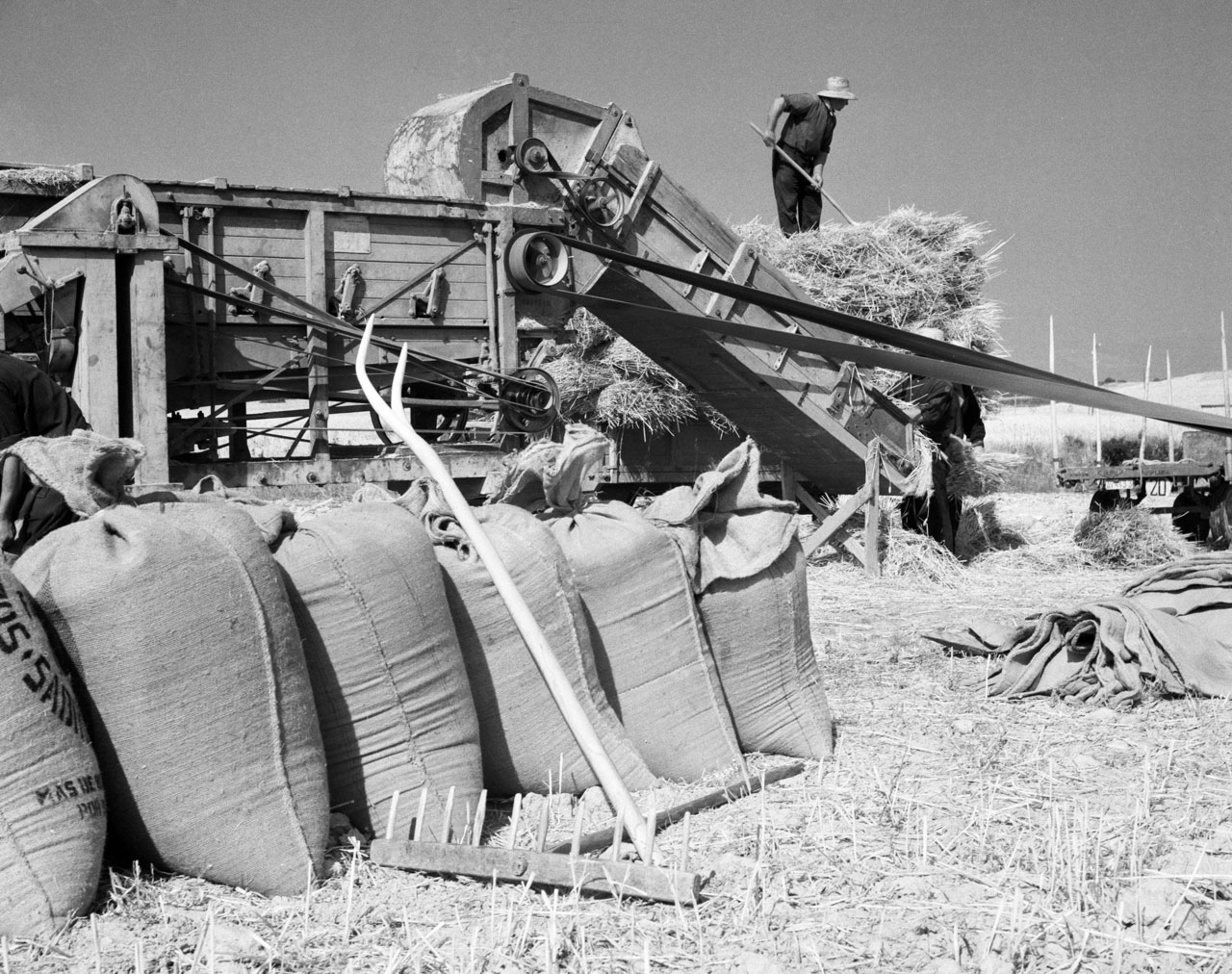Main Page/en
De Atlas Etnográfico de Vasconia
Revisión del 15:00 10 feb 2020 de Admin (discusión | contribuciones)
Old and young husband and wife. Areatza (B), beginning of the 20th century. Source: Rubén de Las Hayas’ private archive.
House and Family in the Basque Country


House and Family in the Basque Country
The aim was to ensure that the family wealth, taken to be the farmstead and its belongings, would be passed on in full or only slightly diminished, and improved if possible, from parents to their offspring.
Family Diet in the Basque Country


Family Diet in the Basque Country
Aza-olioak pil-pil, bisigua zirt-zart, gaztaina erreak pin-pan, ahia goxo-goxo, epel-epel. Traditional Christmas song
Children riding scooters and tricycles at Florida Park. Source: Municipal Archive of Vitoria-Gasteiz: Ceferino Yanguas.
Children’s Games in the Basque Country


Children’s Games in the Basque Country
Humans play games throughout their lives; however, that activity has a clearly different role for children and adults.
Traditional Medicine in the Basque Country


Traditional Medicine in the Basque Country
Zantiratu, zan urrutu, zana bere lekuan sartu.Spell against sprains
Rites from Birth to Marriage in the Basque Country


Rites from Birth to Marriage in the Basque Country
Gazteak, badakizue zelan dantzan egin: burua gora-gora ta kaderai eragin. Folk verse
Funeral Rites in the Basque Country


Funeral Rites in the Basque Country
Death was an event that usually occurred in the neighbourhood, a fact that meant the home of the deceased played a leading role.
Shepherd from Lanciego (A) on the climb to Toloño, 1996. Source: José Ángel Chasco, Etniker Euskalerria Groups.
Livestock Farming and Shepherding in the Basque Country


Livestock Farming and Shepherding in the Basque Country
The Mediterranean watershed of the Basque Country was, and to a large extent is, characterized by the importance of the commons, the communal character of their exploitation by associations and brotherhoods comprising multiple municipalities still persisting today.
Agriculture in the Basque Country


Agriculture in the Basque Country
Maiatz luzea, gosea; garagarrilak ekarriko du asea. A very wet May, much straw and little grain.
